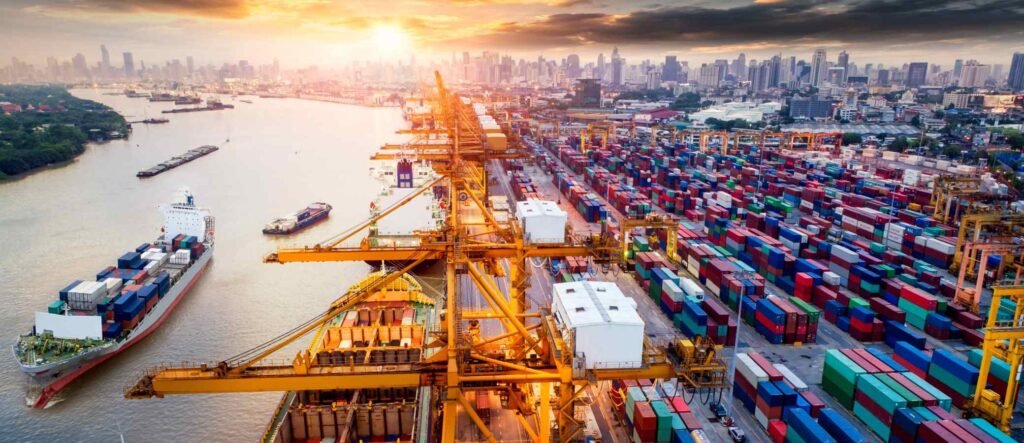Importance of international trading is the exchange of goods and services amongst countries. To put it simply, it is one of the ways in which countries are able to get access to goods and services that they themselves. International trade causes changes in the value, volume, and composition of production throughout a country’s economy. These changes not only change how people make a living but also create new opportunities for some industries.
Pakistan is a fruit-producing country with a rich history of exporting mangoes to the United Kingdom (UK). China, however, has been importing Pakistani mangoes since 2011. This article discusses the implications of this exchange of technology and expertise on Pakistan.

The differences between exports and imports are not well-defined in every country. However, it is important to understand the role they play in an economy, and how they are categorized in order to gain a better understanding of the trade process.
The balance of payments is a record of all the money that has been exchanged between countries. It is the net difference between what a country imports and exports, and it is one of the key macroeconomic indicators used to measure economic activity.
In this essay, I will discuss the advantages and disadvantages of opening up a country’s economy to other countries. My argument is that countries should open up their economies because it can be beneficial for both parties.
The purpose of the China Pakistan Economic Corridor is to link China’s west and south coast with Pakistan’s Arabian Sea. Under the CPEC Phase II, employment grew from 2.8 million in 2015 to 4.9 million in 2018 which has helped the country to sustain its growth rates.
Pakistan has become the 6th largest trading partner, with bilateral trade growing by 10% in the last year alone. As such, more jobs are being created for work in China.
The general idea of "buying low and selling high" is a well-known investing principle. It can be applied to many different industries and is useful in creating wealth. These investors buy assets that are relatively cheap, then sell them when the price goes up. This creates new businesses as well as makes more money for the investor.

One of the consequences of importance of international trading is that countries are forced to innovate. This means that one country may be producing a certain product, and then another country will come up with a similar product. These companies will compete against each other in order to sell their versions of the product to consumers both domestically and internationally.
The process of packaging mangoes is an important step in the distribution chain. But, with many companies using cheap packaging, there is a significant cost difference. However, by innovating with premium-level packaging technology, this cost gap can be narrowed.
The economic theory of comparative advantage suggests that countries should specialize in the production of goods they are relatively more productive at and importance of international trading with other countries.
The United States emerged as a global economic power in the mid-19th century. The country expanded its production to export and, as a result, became more efficient and achieved economies of scale. What is an example of this phenomenon?
Economies of scale is the situation in which an organization can achieve greater efficiency by expanding production over a larger range. When economies of scale are achieved, companies may be able to reduce costs, increase profits or both.
The generic term for importing products is outsourcing, and the practice is common in many industries. When a country imports, it usually enables its citizens access to a great number of goods and services, typically not found in that country. An example of this is South Asian mangoes easily available in markets in North America and Europe.
Today, the United States is a cereal-obsessed nation. It’s estimated that on any given day, there are over 700 brands of cereal that people could choose from. But this was not always the case. The average person in Pakistan has only two choices for breakfast: bajra (a type of millet) and wheaten cereal.
Imagine going grocery shopping without ever having to leave the house. Now, thanks to online shopping, people can purchase food at their convenience. This revolution in e-commerce has made it much easier for people to stay healthy and eat fresh food. With this new technology, it’s now possible to get anything you need from around the world at any time of the day.
These services are not affordable for many people because they can’t afford the high prices. However, there is a solution that has proven to be very effective and beneficial to everyone: AI writing assistants.
There are those who believe that outsourcing production to countries like China, India and Bangladesh is not a good strategy for increasing wealth and employment. They argue that in the long run outsourcing is not an effective way to preserve jobs, as these nations can quickly learn how to produce goods and services at a lower cost than we could ever hope for.
The introduction of artificial intelligence in the home industries has raised some concerns about the balance of payment for countries. Some experts even argue that this leaves little room for innovation and expansion in the home industries, and leaves economies too dependent on imports. This also disturbs balance of payment, and can cause inflationary pressures.
Despite this, Importance of international trading is important, and it is the government which helps regulate flows of exports and imports to maintain trade balance. There are many other factors that influence the success of international trade, such as production & marketing factors.
Pakistan has a largely agro-based economy and exports agricultural products, such as wheat, rice, vegetables and fruits, and pulses. This article was written to inform readers about the different types of trade Pakistan does with other countries.
It's no secret that Pakistan is a major exporter of cotton. The country has been able to export USD 2.64 billion worth of cotton and cotton products during Fiscal Year 2020-2021, with exports increasing by 12% in the last fiscal year. Recently, Pakistani cotton industry has seen double digit growth rate with an increase in production by 12%.
It’s no secret that Pakistan is a major exporter of cotton. The country has been able to export USD 2.64 billion worth of cotton and cotton products during Fiscal Year 2020-2021, with exports increasing by 12% in the last fiscal year. Recently, Pakistani cotton industry has seen double digit growth rate with an increase in production by 12%.
With a total yield of 7,284 tons and an export value of USD 2.64 billion, Pakistan’s cotton industry is one of the largest in the world. In recent years, Pakistan has seen double-digit growth in exports.
In the world of economics, pandemics are often seen as a potential threat to the global economy. However, Pakistan seems to be taking advantage of this opportunity and has seen a considerable increase in economic activity. This could indicate a hopeful change for the future of Pakistan.
The United States spends $1.7 billion on arms sales to Pakistan each year, which is a significant portion of its total military export market. The US government justifies these arms sales as being in the interest of fighting terrorism and stabilizing Pakistan. The US is not the only country that sells weapons to Pakistan; France, Germany, Italy, Spain and others are also engaged in this trade.
Moreover, Pakistan has emerged as the biggest international market for freelancers (e.g. writers, graphic designers, web developers, etc.) which is also calculated as an exported service.
The study further revealed that the demand for international freelancers has increased by more than 350 percent in the past five years and is expected to grow to $5 billion by 2020.
Pakistan is expected to emerge as a top destination for South Asia’s agricultural produce and IT-based services in the coming years. The country has abundant water, low cost labor, and a large industrial base.Get an authentic source of products